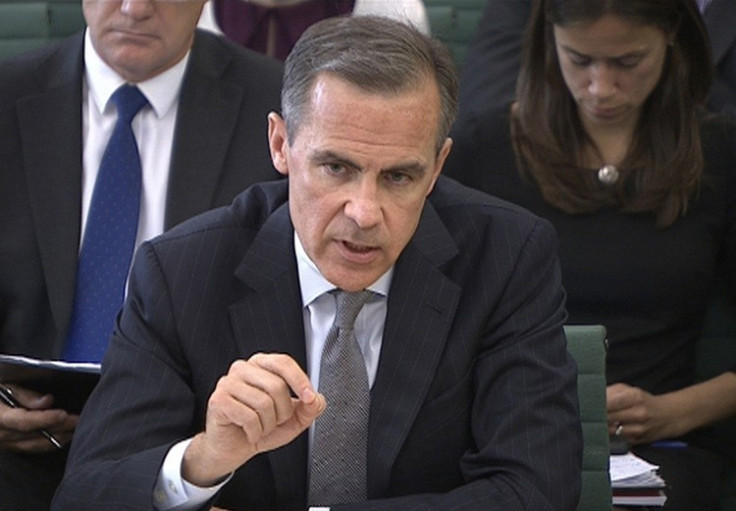Mark Carney: Mansion House Speech Meant to Jolt Markets Over UK Rates Hike Timing

Mark Carney said he intended to spook markets with his Mansion House speech in which the Bank of England governor said a hike in interest rates may come sooner than expected.
Responding to a question at a Treasury Select Committee (TSC) hearing, Carney said he "absolutely" intended for markets to tighten in response to his speech.
He said the central bank's rate-setting monetary policy committee (MPC) had found it "somewhat surprising" that markets had low expectations of interest rates rising in 2014. Most analysts had expected the Bank of England to lift its record-low 0.5% base rate at some point in 2015.
"We would like to see the market adjust to the data," Carney told the TSC, after pointing out that job creation and economic growth in the UK had beaten expectations.
Though wage growth had been "softer than expected", Carney said the MPC sticks to its belief that pay will accelerate in the second half of 2014 and support household consumption in the economic recovery, which has so far relied heavily on the depletion of savings rather than higher incomes.
Wage growth has consistently fallen behind price inflation since the financial crisis, leaving many workers worse off in real terms.
Charlie Bean, who also sits on the MPC and was at the TSC hearing, said he thinks wages will lift in the coming months "reflecting the gradual tightening in the labour market".
"Our agents are suggesting in some areas where there's a lack of labour, such as construction ... those shortages are starting to appear and they are being met by selective higher pay awards," he said, but he added that they are not yet widespread enough to drive average pay higher on the whole.
Another MPC member at the TSC hearing, David Miles, said the poor wage performance implied a lot of spare capacity in the economy, particularly in the labour market.
He highlighted the "hidden unemployment" of people who class themselves as self-employed, but barely earn enough to sustain themselves, and rife underemployment – those who work, but not as many hours as they want.
As the economy grows stronger and wages start to reverse their real terms decline, the Bank of England has repeatedly said it will look to raise rates gradually.
© Copyright IBTimes 2025. All rights reserved.





















